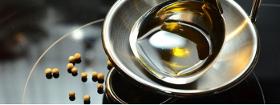- europages
- >
- COMPANIES - SUPPLIERS - SERVICE PROVIDERS
- >
- vegetable oils
Results for
Vegetable oils - Import export

ILANGA NATURE
Belgium
Sardinia, in the heart of the Mediterranean Sea juxtaposes its cousin: Corsica. Its adorned myrtles hills and some other plants, a unique landscape that enriches the lush thousand-years old olive trees.

DE SMET ENGINEERS & CONTRACTORS
Belgium
Edible Oil production is able to process different qualities of products depending on the needs of the market. For some cases the clients may only need the process of Vegetable Oil Extraction, but in order to have the premium quality oil, the Vegetable Oil Refining process will be required. De Smet Engineers & Contractors can assist your company to decide the best process requirements as well as the Contractual Setup that adapts better for every client's case. Following are the main steps of an Edible Oil Refining process: Degumming Degumming reduces the phosphatides content in some crude oils (soybean, sunflower, rapeseed etc) Neutralizing The free acids contain in oil can be either alkali neutralize. Most oils can be "physically" neutralize in the deodoriser render this alkali treatment unnecessary Bleaching During this operation most colouring pigments are removed by absorption bleaching earth. Deodorizing Odour and taste are removed under special condition (high temperature and sparge steam) Winterizing Some oils like sunflower will present an un-pleasant turbidity at low temperature. This can be removed by eliminating components like waxes which solidify at low temperature.
Request for a quote
DE SMET ENGINEERS & CONTRACTORS
Belgium
De Smet Engineers & Contractors has been involved in all steps of the production of vegetable oils from oilseeds crushing for the construction of Edible Oils Plants; in this article you will find a more detailed understanding about the process of vegetable oil extraction: First step: Preparation of the oil containing material prior to solvent extraction Cleaning and Drying The plant feedstock must be cleaned so that foreign matters are removed. This applies particularly to sand/silicate and iron which may damage the preparation plant equipment. For some seeds or for some processes the incoming material moisture must be controlled and adjusted for better efficiency of subsequent operations. Mechanical preparation Most of raw materials needs to broken to reduce the particle size to ensure proper cooking and flaking. They are then heated in cooking / conditioning equipment and their moisture further controlled in addition to be softened before the next mechanical operations. After cooking, heated grits are flaked so that the oil cells are broken and the oil more readily available for further solvent extraction or mechanical pressing. Pressing Oilseeds containing above 20 to 25% (rapeseed, sunflower seeds, cottonseeds...) are generally pressed mechanically in order to extract most or part of the oil available in the feedstock. This operation is done through full pressing for maximum oil recovery leaving up to 5 to 10% in the final cake which is marketed as such or through a low pressure pre-pressing operation producing a cake with higher residual oil content which is then recovered in the solvent extraction plant. Dehulling Oil extraction plants produce a solid finished product in addition to the extracted oil; this product (cake or meal) is normally used as an important component for animal feed recipes. Depending on the meal destination, its protein content often needs to be increased and its fibre content minimized. Such characteristics are generally achieved through decortication or dehulling operations that separate the outer part of the feedstock before extracting the oil. Second step: Solvent extraction of the material suitably prepared Extraction In the solvent extractor, solids (Flakes from the flaking machines or cakes from the pre-presses) are conveyed through the equipment while a mixture of hexane and oil (miscella) is sprayed counter-current. The extractor produces therefore deoiled solids containing solvent and miscella. Desolventization Deoiled solids coming out of the extractor are conveyed to a dedicated equipment that completely removes the remaining solvent while preserving the meal quality: the desolventizer. This apparatus is usually combined with additional sections for drying and cooling the meal to the required storage and market parameters. Miscella distillation Solvent contained in the miscella is completely removed under vacuum and optimum temperature for preserving oil quality. The solvent from the distillation as well as the one removed at meal desolventization stage are then recycled to the extractor. Solvent recovery Since the air entering the process together with material fed to the extractor is laden with solvent when it is removed from the plant it first pass through a specially designed absorption column to limit emission to an acceptable level. Meal treatment The extracted meal is often subject for further treatment, including grinding to obtain the required granulometry or pelletizing to reduce its volume during transport.
Request for a quoteDo you sell or make similar products?
Sign up to europages and have your products listed
Results for
Vegetable oils - Import exportNumber of results
3 ProductsCompany type
Category